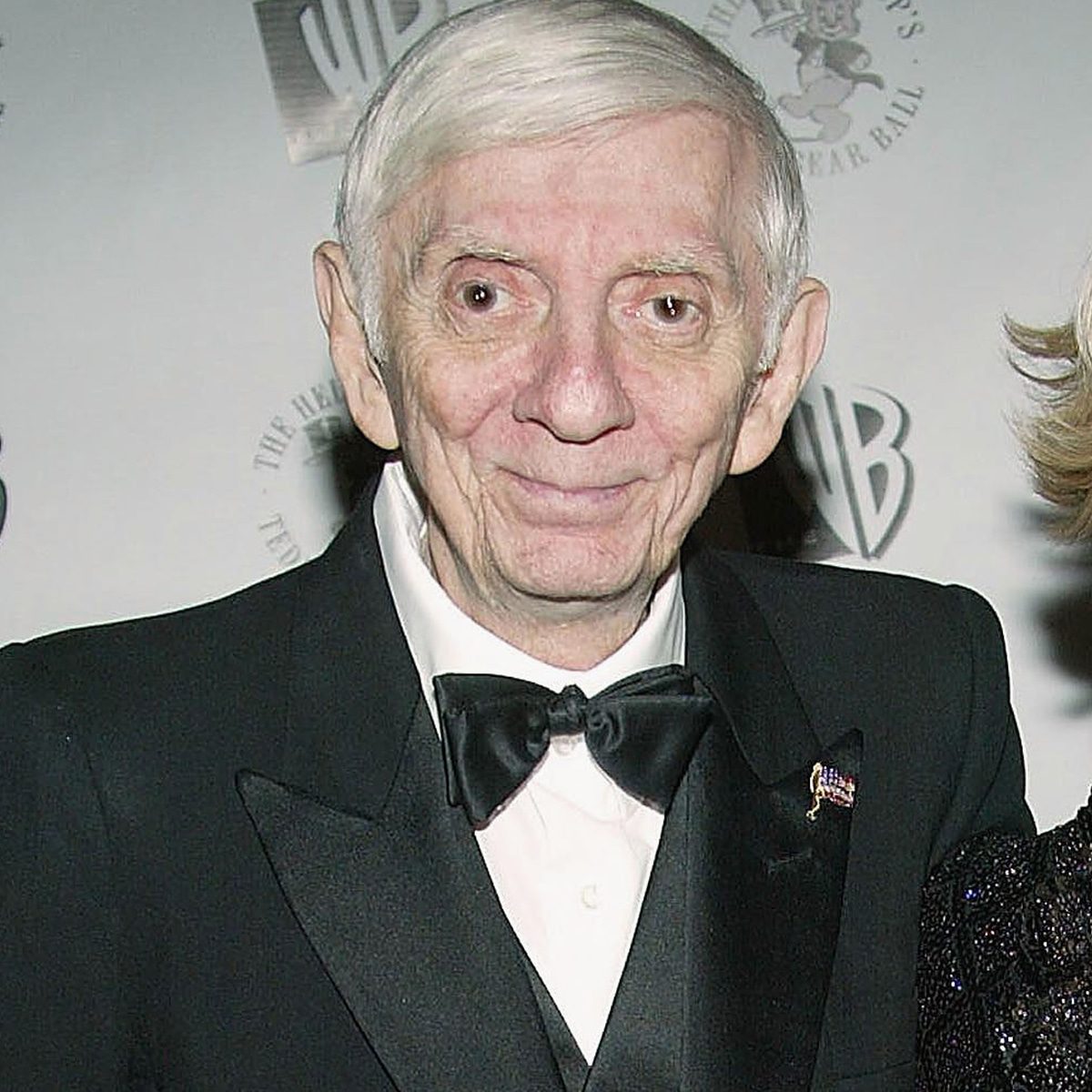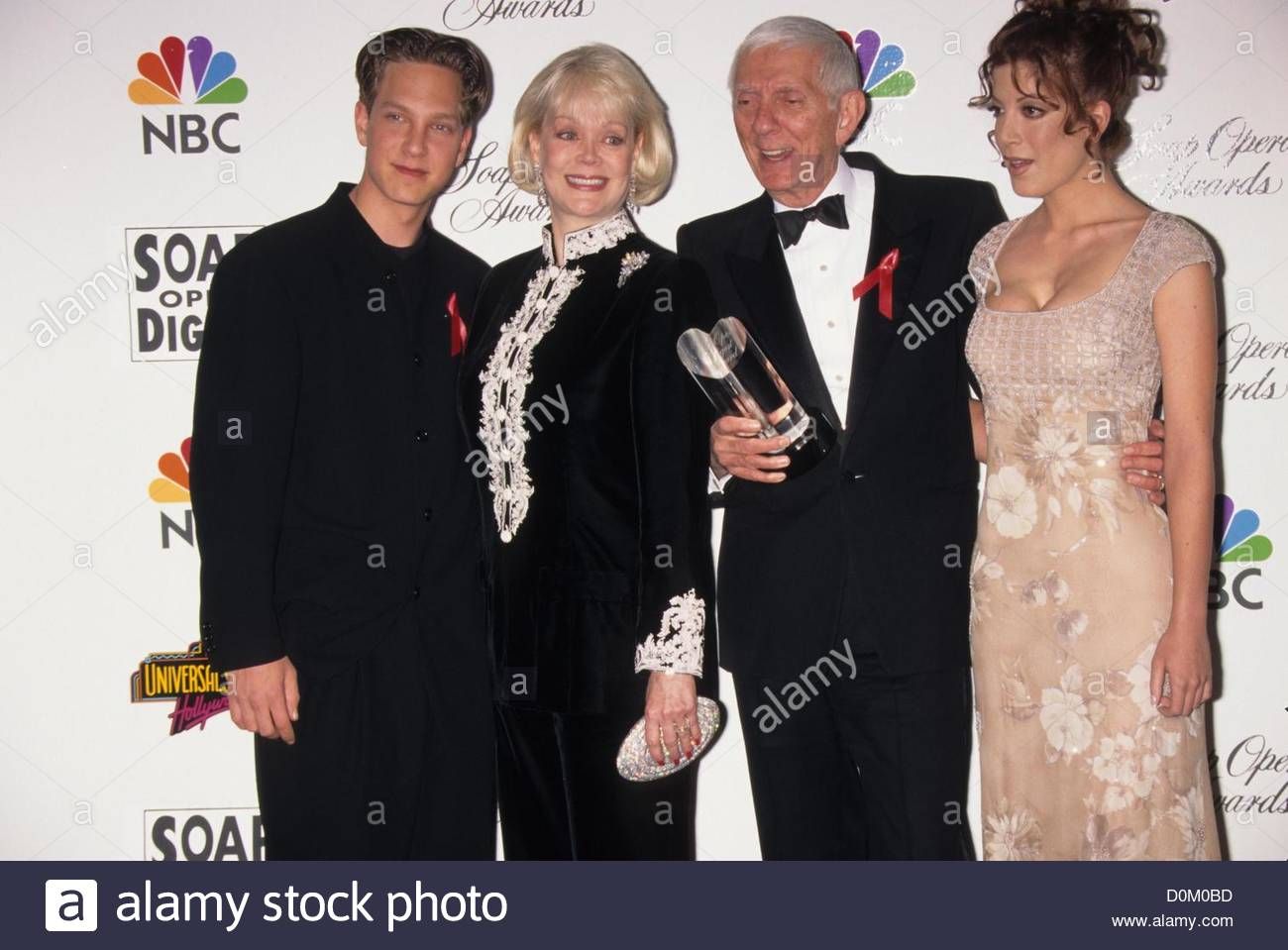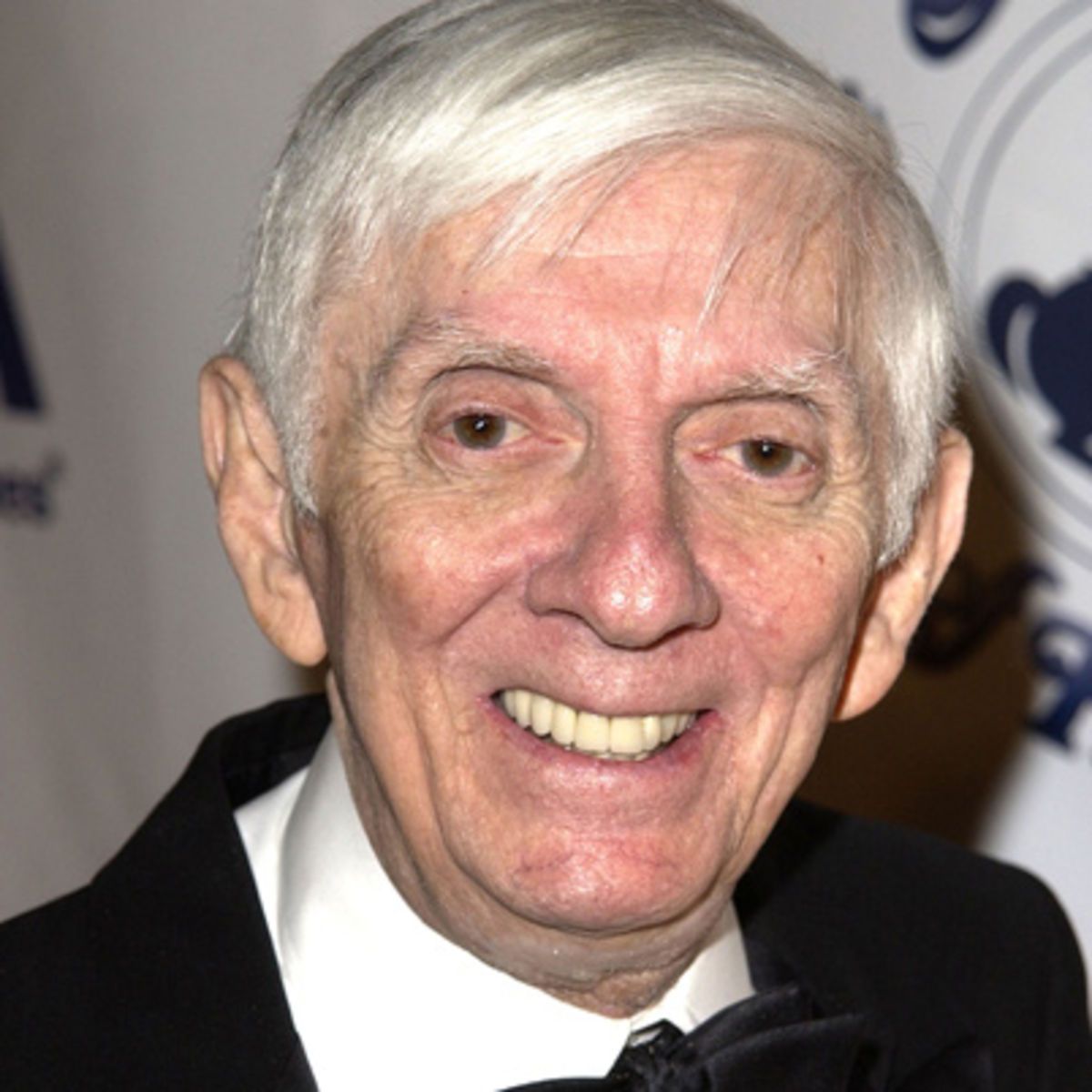When we talk about television's biggest names, one figure stands out, a person whose creative touch shaped decades of primetime entertainment. That person is Aaron Spelling, a true visionary who brought so many unforgettable stories and characters into our living rooms. His influence on what we watched, and how we watched it, remains quite profound, really.
For a very long time, his productions were a consistent presence on our screens, often defining what popular culture looked like. He had a knack for knowing what people wanted to see, and then, you know, delivering it in a way that just kept us coming back for more. It's almost as if he had a secret recipe for creating shows that everyone talked about.
So, we're going to take a closer look at the life and work of this remarkable individual, someone who, in a way, helped write the rules for modern television. We will see how his name became synonymous with a certain kind of storytelling, and what that means for how we look at entertainment even today.
- When Is Victorias Secret Semi Annual Sale 2025
- Build A Bear Muffins
- Naasir Cunningham
- Meritt Bank
- Autobacs
Table of Contents
- The Architect of Primetime - Who Was Aaron Spelling?
- What Made Aaron Spelling's Vision Unique?
- Aaron Spelling's Unforgettable Creations - A Look at His Shows
- How Did Aaron Spelling Shape Television Storytelling?
- Beyond the Screen - Aaron Spelling's Personal Footprint
- Did Aaron Spelling's Name Carry a Special Weight?
- What Lessons Can We Take From Aaron Spelling's Career?
- The Enduring Legacy of Aaron Spelling
The Architect of Primetime - Who Was Aaron Spelling?
Aaron Spelling, a name that just about everybody who watched television in the latter half of the 20th century would recognize, was a person who built a truly impressive empire of entertainment. He was born in Dallas, Texas, and came from very humble beginnings, actually. His early days were a bit of a struggle, but he always had this drive, this determination to make something of himself. It’s a story you hear sometimes, about someone starting with not much and then achieving so much.
Before he became the titan of television production, he tried his hand at a few different things. He served in the military during World War II, then went on to attend Southern Methodist University. After that, he moved to New York City, working as an actor and writer, just trying to get his foot in the door. He eventually made his way to Hollywood, where he started working behind the scenes, first in smaller roles, then slowly, surely, moving up the ladder. It was a gradual climb, not an overnight sensation, that’s for sure.
His work as a producer began to take shape in the 1960s, where he teamed up with Danny Thomas to create Four Star Television. This was where he really began to show his talent for creating popular shows. He had a way of seeing what might connect with a wide audience, and then finding the right people to bring those ideas to life. It’s kind of like someone who knows exactly what ingredients to pick to make a delicious meal, you know?
- North Meck Animal Rescue
- Spanish Around
- When Will Bucees Open In Arizona
- Meriwether Farms Reviews Complaints
- 17 Avenue Southwest
Here are some details about the life of this remarkable person:
- Full Name: Aaron F. Spelling
- Born: April 22, 1923, Dallas, Texas, U.S.
- Died: June 23, 2006 (aged 83), Los Angeles, California, U.S.
- Spouse(s): Carolyn Jones (m. 1953; div. 1964), Candy Marer (m. 1968)
- Children: Randy Spelling, Tori Spelling
- Occupation: Television producer, film producer
- Notable Works: Charlie's Angels, The Love Boat, Fantasy Island, Dynasty, Beverly Hills, 90210, Melrose Place, 7th Heaven, Charmed
What Made Aaron Spelling's Vision Unique?
When you look at the many shows Aaron Spelling brought to the screen, you start to notice a pattern, a sort of signature touch. He had a particular way of crafting stories that often involved glamorous settings, attractive characters, and situations that were a little larger than life. It wasn't always about deep, complex narratives; often, it was about escapism, about giving people a chance to step away from their everyday lives and enjoy something fun and exciting, you know?
He was very good at spotting trends and then putting his own spin on them. If detective shows were popular, he would create a detective show with a twist, like three beautiful women solving crimes. If family dramas were getting attention, he would make one that felt fresh and new. He understood that television was a place for dreams and aspirations, and he delivered on that promise, really. His productions often felt like a grand party, and everyone was invited.
A big part of his approach was also about creating characters that, while sometimes a bit stereotypical, were also very memorable. You might not remember every plot detail from an Aaron Spelling show, but you probably remember the characters, their hairstyles, their clothes, and the catchphrases they used. He had a knack for making people stick in your mind, which is that, a pretty special talent for someone who works in television.
Aaron Spelling's Unforgettable Creations - A Look at His Shows
The list of shows Aaron Spelling produced is just incredibly long, stretching across so many different genres and appealing to such a wide variety of people. From the detective action of "Charlie's Angels" to the soapy drama of "Dynasty," and the teen angst of "Beverly Hills, 90210," his productions covered a lot of ground. Each show, in its own way, captured a piece of the cultural moment it was in, you know?
"Charlie's Angels," for example, became a true cultural touchstone. It featured three women who were smart, capable, and, yes, very stylish, solving crimes for a mysterious boss. It was a show that offered a bit of fantasy, a bit of excitement, and a lot of fun. People watched it because it was entertaining, and it gave them something to talk about around the water cooler the next day, which is that, a pretty good measure of success.
Then you have shows like "The Love Boat" and "Fantasy Island," which were all about bringing people to exciting, often exotic, places and seeing what happened when they were put in new situations. These shows were lighthearted, often funny, and offered a glimpse into worlds that felt far away from the everyday. They were, in a way, like mini-vacations every week, and that was something a lot of viewers really liked.
Later, he moved into dramas that explored the lives of the wealthy and powerful, like "Dynasty," which became famous for its over-the-top storylines and glamorous fashion. And then, he found a whole new audience with shows like "Beverly Hills, 90120" and "Melrose Place," which spoke directly to younger viewers, dealing with their friendships, romances, and personal struggles. He just kept finding ways to connect with people, almost as if he had a direct line to what viewers were thinking.
How Did Aaron Spelling Shape Television Storytelling?
Aaron Spelling's impact on television storytelling goes a bit deeper than just creating popular shows. He helped define a certain style of narrative, one that often prioritized emotion, drama, and sometimes, a good dose of melodrama, over strict realism. His shows were often about heightened reality, where feelings were big, and problems were often solved in dramatic, satisfying ways. It was a style that worked incredibly well for episodic television, where you wanted to keep people hooked week after week, you know?
He understood the rhythm of television, how to build suspense, how to create cliffhangers, and how to make sure that even if a story was a bit wild, it still felt emotionally resonant for the audience. His productions were very good at establishing a clear tone and sticking with it, so viewers always knew what they were getting when they tuned in. This consistency, in some respects, was a big part of why people trusted his shows.
In a way, he was a master at "spelling out" a particular kind of entertainment. Just as parents might think carefully about how to spell a name for their child, considering how it sounds or what feelings it evokes, Aaron Spelling seemed to think carefully about how to "spell out" a show's identity. He wanted his productions to have a clear, memorable presence, something that would stick with people. His name, "Aaron Spelling," became, in a sense, a brand that promised a specific kind of television experience, much like how a particular spelling of a family name carries a certain meaning or history for those who bear it.
Beyond the Screen - Aaron Spelling's Personal Footprint
While Aaron Spelling was certainly a public figure due to his work, he also had a personal life that intertwined with his professional one, as is often the case for people who achieve such widespread recognition. He was a family man, and his children, especially his daughter Tori Spelling, became public figures in their own right, sometimes even appearing in his productions. It's a bit like how family names can carry on, sometimes with new generations taking them in slightly different directions, you know?
His home life, while generally kept private, did sometimes offer glimpses into the kind of person he was outside of the studio. He was known for being very dedicated to his work, but also for being a loving father and husband. His relationship with his wife, Candy, and their children, was an important part of his life story. It reminds you that even the biggest names in entertainment are still people with families and personal connections, that.
The idea of family and legacy, which is something people think about when choosing names for their children, also applies to someone like Aaron Spelling. When families decide to combine names, like "Donald/David + Aaron = Daron," they are often trying to honor someone or carry on a piece of their heritage. In a similar vein, Aaron Spelling's work, and the family he built, became a significant part of his lasting impact. His children, in their own careers, carry a part of that "Spelling" name, continuing a kind of family tradition in the entertainment business, albeit in their own unique ways.
Did Aaron Spelling's Name Carry a Special Weight?
It's interesting to think about how a name, especially one belonging to a very famous person like Aaron Spelling, can take on a special meaning or evoke certain ideas. When you hear "Aaron Spelling," it doesn't just sound like a collection of letters; it sounds like a particular kind of television show, a certain era of entertainment, and a very specific style of storytelling. It's not just "Aaron," you know? It's "Aaron Spelling," which carries a whole different set of associations.
This is a bit like how names work in general. As people sometimes discuss, "Erin and Aaron are not the same name," even if they sound a little similar. Each name has its own distinct identity and history. For someone like Aaron Spelling, his name became a sort of shorthand for an entire genre of popular television. When you saw his name attached to a project, you had a pretty good idea of what you were going to get: drama, glamour, and plenty of excitement. It's almost as if his name itself became a promise to the audience.
You know, the way a name can bring up certain memories or images for people is pretty powerful. Just as the name "Aaron Burr" might remind someone of a particular milk commercial, the name "Aaron Spelling" conjures up images of grand mansions, high school hallways filled with drama, or cruise ships full of romantic encounters. His name, in a way, became a very effective marketing tool, signaling to viewers what kind of entertainment experience awaited them. It became a name that stood for a whole world of television, really.
What Lessons Can We Take From Aaron Spelling's Career?
Looking at Aaron Spelling's long and very successful career, there are some clear takeaways for anyone interested in creative pursuits or building something big. One of the biggest lessons is about persistence. He didn't just stumble into success; he worked for it, starting from the ground up and gradually building his way to the top. That kind of sustained effort, that, is something to admire.
Another thing we can learn is about understanding your audience. Aaron Spelling had a remarkable ability to tap into what people wanted to watch. He wasn't afraid to give them what they enjoyed, even if some critics might have looked down on it. He focused on entertaining, and he did it very well. It's about knowing who you're talking to and speaking their language, basically.
He also showed the value of staying current and adapting. Over the decades, television changed a lot, but Aaron Spelling always found a way to stay relevant, producing hits across different eras and for different generations. He kept his finger on the pulse of popular culture, which is that, a pretty important skill in any creative field. His ability to evolve and keep creating new stories for new audiences is a true mark of his enduring talent.
The Enduring Legacy of Aaron Spelling
The impact of Aaron Spelling on television is something that continues to be felt, even years after his passing. His shows are still remembered, still watched, and they certainly influenced countless other programs that came after them. He didn't just make television; he helped shape the very idea of what popular television could be, you know? His productions were a big part of the cultural conversation for so long, and that kind of influence doesn't just fade away.
His name is still spoken with respect in Hollywood, recognized as someone who truly understood the entertainment business and how to create content that resonated with millions. He built a production company that became a powerhouse, and the sheer volume of his work is just astounding. It's a pretty remarkable achievement for anyone, let alone someone who started with so little, really.
So, when you think about the history of television, and all the shows that have become a part of our collective memory, Aaron Spelling's name is right there among the most important figures. His vision, his drive, and his ability to connect with audiences left a lasting mark on the small screen, and that, is a legacy that continues to entertain and inspire.
- Takashi Murakami Clothing
- Umich Complex Systems
- Adrienne Arts Center Miami
- Andrea Vasquez
- Shahirizada Restaurant


